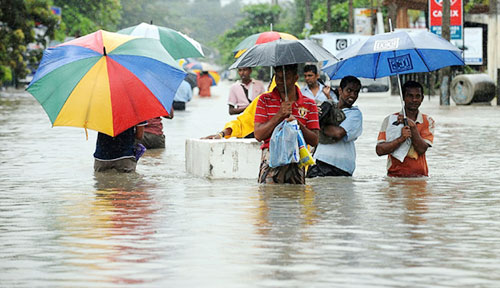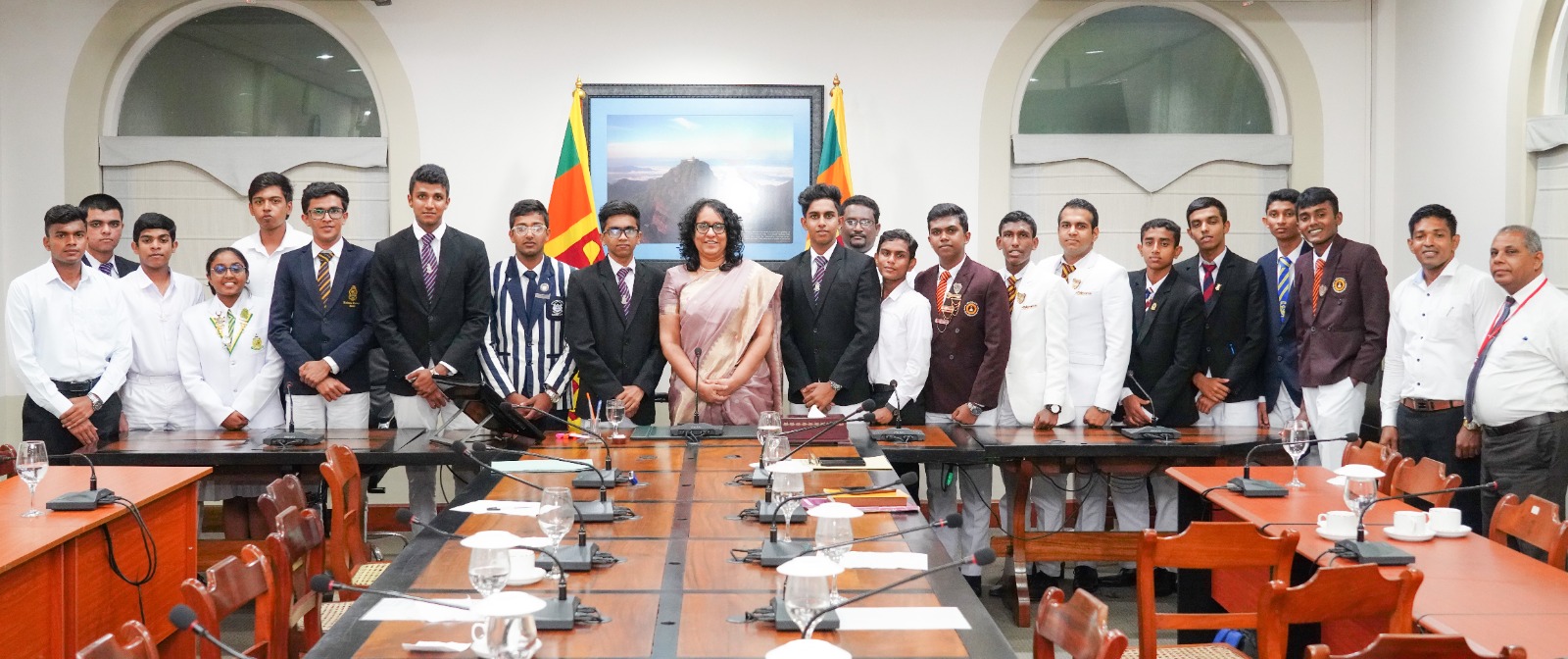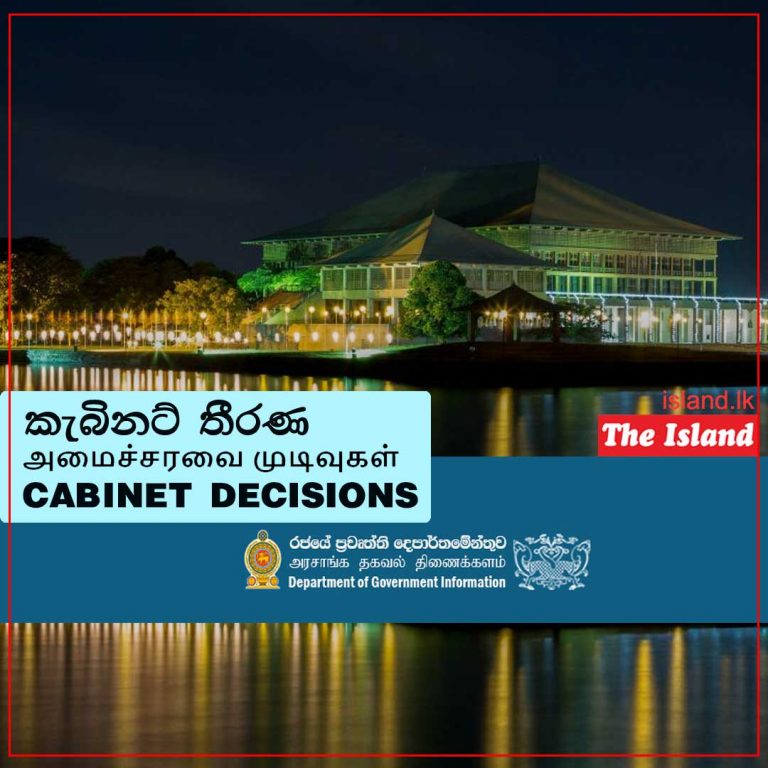News
South Asian monsoon becoming increasingly unpredictable, catastrophic: experts

File photo of residents walk along a flooded road in Piliyandala in 2010
Calamitous impact of summer monsoon in Lanka marked by flooding and drought is topic of concern
Monsoon season is becoming increasingly unpredictable and catastrophic despite its significance for South Asia, speakers at a webinar said on Sunday, The Dawn reported yesterday.
The Dawn report filed from Islamabad said: International experts and scientists from Bangladesh, Nepal, Sri Lanka and Pakistan participated in an online seminar on the ‘Impacts of Climate Change on South Asian Monsoon’, organised by the Comsats Centre for Climate and Sustainability (CCCS).
They discussed the variability of the monsoon and its relationship with the changing global climate system, as well as the adverse effects of climate-mediated changes on South Asia.
Speakers argued that global warming is causing extreme precipitation and extreme climate events such as drought, with dire consequences for the agriculture-based economy of the region and the livelihoods of farming communities.
CCCS founder and head, retired ambassador Shahid A. Kamal, opened the webinar.
He said the monsoon was considered one of the world’s most important weather systems, adding that it was imperative for reliable monsoon forecasting to understand the changing water patterns in South Asia.
Other speakers included Dhaka University Associate Professor Dr Mohammad Ismail, Tribhuvan University Associate Professor Dr Madan Sigdel, deputy director atthe Pakistan Meteorological Department Dr Zaheer Ahmad Babar, Sri Lanka Department of Meteorology Director Anusha Rashanti Warnasooriya and Thailand National Astronomical Research Institute Senior Researcher Dr Vanisa Surapipith.
The discussion highlighted the gravity of social, economic and environmental implications associated with the abrupt monsoon pattern in South Asia.
Speakers discussed the repercussions of increasing monsoon variability for Nepal as well as disasters caused by extreme weather events, current trends and future projections about shifting patterns of monsoon in various parts of Pakistan, the calamitous impact of summer monsoon in Sri Lanka marked by flooding and drought, the impact of atmospheric aerosols and non-renewable energy resources on precipitation patterns, and the mitigation strategies taken by the government of Bangladesh to curb the fallout from climate change.
Some key recommendations from the webinar included a call for research-backed policy formulation to help mitigate the negative impact of suddenly changing monsoon patterns on the environmental and socioeconomic conditions of the South Asian region.
They also called for the appropriate allocation of resources to strengthen the scientific and technical capacity of South Asian countries and enhanced regional cooperation to promote the sharing of good practices and sustainable solutions to aid adaptation with variable monsoon trends.
Latest News
Members of the National Student Parliament meet PM

Members of the National Student Parliament met Prime Minister Dr. Harini Amarasuriya on Monday [02nd of February] at Temple Trees.
The representatives of the National Student Parliament, representing schools from across the island, visited the Temple Trees following their visit to the Presidential Secretariat and the Parliament.
Expressing her views on the occasion, Prime Minister Dr. Harini Amarasuriya stated,
“The new education reforms were recently initiated starting from Grade One. Discussions are currently underway to include students entering Grade Six this year into the new education reform process in the future. The education reforms will not be halted, and the government is committed to implementing them in a systematic manner without shortcomings”.
She further noted that the reforms are being carried out under five main pillars, with the government’s key objective being to reduce disparities and provide children with quality education, while also nurturing a socially responsible community enriched with human values such as compassion, love for the environment, and a strong sense of civic responsibility.
The occasion was attended by the Deputy Director of Education Kasun Gunarathne, along with officials from the Ministry of Education and representatives of the National Student Parliament.
[Prime Minister’s Media Division]
Latest News
Mrs. I.J. Aberathne appointed Director General of the Department of Trade and Investment Policy

The Cabinet of Ministers has approved the resolution presented by the President, in his capacity as the Minister of Finance, Planning, and Economic Development, to appoint Mrs. I.J. Aberathne to the post of Director General of the Department of Trade and Investment Policy with immediate effect.
News
Cabinet gives green light to provide equipment for the promotion of Aesthetic Education in schools

Although the teaching of art subjects such as music, dance, art, and drama under aesthetic education continues in the Sri Lankan school system, it has been observed that there is a severe shortage of equipment required for this purpose in many schools. Furthermore, a situation concerning the lack of modern equipment suitable for the needs of the children has also arisen, and it has been reported that most equipment available at present is outdated and dilapidated. It has been observed that this condition has an adverse effect on the quality of the aesthetic education and overall personality development of the children.
Therefore, the Cabinet of Ministers has approved the resolution presented by the Prime Minister in her capacity as the Minister of Education, Higher Education, and Vocational Education to implement a project for supplying aesthetic equipment for the promotion of aesthetic education in schools under an estimated cost of Rs. 1,215 million during the period of 2026 to 2028.
-

 Opinion5 days ago
Opinion5 days agoSri Lanka, the Stars,and statesmen
-

 Business6 days ago
Business6 days agoClimate risks, poverty, and recovery financing in focus at CEPA policy panel
-

 Business4 days ago
Business4 days agoHayleys Mobility ushering in a new era of premium sustainable mobility
-

 Business4 days ago
Business4 days agoAdvice Lab unveils new 13,000+ sqft office, marking major expansion in financial services BPO to Australia
-

 Business4 days ago
Business4 days agoArpico NextGen Mattress gains recognition for innovation
-

 Business17 hours ago
Business17 hours agoSLIM-Kantar People’s Awards 2026 to recognise Sri Lanka’s most trusted brands and personalities
-

 Business3 days ago
Business3 days agoAltair issues over 100+ title deeds post ownership change
-

 Business3 days ago
Business3 days agoSri Lanka opens first country pavilion at London exhibition













